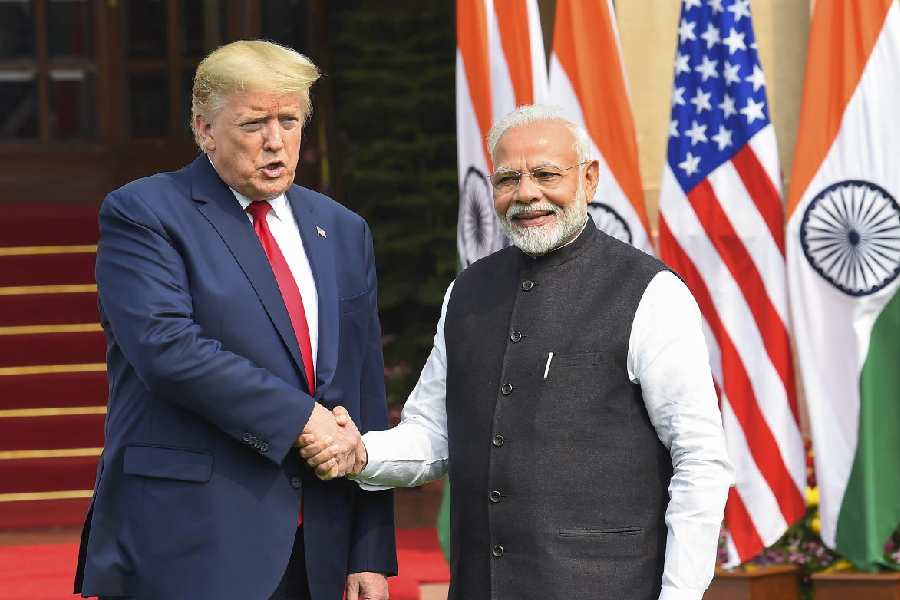 |
Audio and video piracy is one of the biggest thorns in the side of the entertainment industry, leading to the loss of huge amounts of revenue. Recently, the West Bengal government did its bit to curb the menace by passing the West Bengal Prohibition of Audio-Video Piracy Bill, 2013, in the state legislature. The law makes the act of content piracy a non-bailable, cognisable offence and can get you anywhere from three to seven years in jail and a fine of up to Rs 1 lakh.
But if you’re thinking of wiping your hard drive clean, wait a bit. This law is targeting those who enable piracy in the first place — people who make and sell pirated music and movie CDs and DVDs that are sold on street corners, or upload copies for you to download.
“Section 4 of the act targets people who abet piracy or commit piracy,” explains Anirban Mazumdar, a professor of intellectual property law at the National University for Judicial Sciences, Calcutta. “Section 2(c) defines audio-video piracy as duplicating the original work with a view to trade, sell, or hire duplicated copies of original work. So the act does not make it an offence to possess pirated copies for non-commercial use,” he adds.
There are no definitive figures on how much revenue the entertainment industry loses each year on account of piracy, as there’s no way to collate data on sales of pirated media. It’s not just people downloading or buying pirated CDs — loss of revenue can stem from things such as hotels not acquiring appropriate licences to play music in their lobbies, or events where popular songs are played without procuring a licence to do so.
“We have members who haven’t had work for over 20 years and are living off the royalties for songs they made 30 years ago that still play on the radio,” says Kunal Sarin, head of licensing of the Indian Performing Rights Society (IPRS), an organisation that manages licensing issues for music artistes across the country. “These members live off their royalty collections, and piracy hurts them deeply. Not obtaining a licence is also piracy! The loss of revenue from this is significant.”
Sarin points to a recent altercation his organisation had with the Federation of Hotel and Restaurant Associations of India (FHRAI), a body which represents most members of the hospitality industry, including bigwigs such as the Oberoi and Taj group of hotels. IPRS usually obtains a circular from state governments saying that places such as hotels and restaurants within the state have to obtain the licensing rights to play music on their premises.
Despite that, Sarin says, in West Bengal at least, hotels and restaurants claimed they didn’t need the licences and continued to play music without clearance from IPRS. After a lot of back and forth between the two groups, IPRS was finally able to convince FHRAI to acquire the necessary licences.
Sarin feels that the new bill is a welcome move by the West Bengal government. “It’s an excellent thing that’s happened,” he exclaims. “Go to any lane, and there are guys selling pirated CDs. It’s especially bad in Calcutta compared to places like Delhi or Mumbai. The problem is compounded when much of the piracy is done through non-physical formats.”
Non-physical formats refer to digital versions of content, such as movie files or MP3s you can play on your computer. Physical formats refer to CDs and DVDs. According to Mazumdar, Section 2(c) of the act states that piracy of any and all formats is to be curbed.
But of course, the big question remains as to how effective such a law can be — given the fact that attempts to tackle piracy in other parts of the world have not been very successful. Take the United States. Even though end users have been sued by copyright holding companies such as RIAA (Recording Industry Association of America) for millions of dollars for downloading pirated content, piracy is as rampant there as ever. Embedding different types of anti-piracy software in music and video files haven’t had much effect either.
In India too, even states that have moved hard against piracy haven’t been able to make a significant dent on the illicit industry. In Chennai, the police regularly conduct raids and arrest hawkers of pirated CDs and DVDs. But this doesn’t deter them in the least. As one of them (he wishes to remain anonymous) says, “We get arrested and spend one night in jail. Then we are released the next morning and we go back to our usual business. We consider it a routine part of the work we do.”
Others say that anti-piracy laws, such as the one passed by West Bengal, are superfluous in the context of the fact that we already have a Copyright Act. As Biswajit Sarkar, a Calcutta-based intellectual property lawyer, points out, “We already have the Copyright Act that’s fairly strong and covers the entire nation. Why on earth would we need a state specific bill against piracy? Sections 51, 63, and 68 of the Copyright Act clearly spell out what copyright infringement is, and what the punishment for it is. The West Bengal anti-piracy law doesn’t offer anything new or different that isn’t already covered by existing laws.”
Mazumdar believes that the problem is really a cultural one, and needs to be tackled as such. “It’s become part of our culture today to wear branded jeans and buy pirated music and films,” he says. “This is something that can only be tackled through raising awareness in schools and colleges.”
Some content creators give a different spin on the whole issue of piracy. Says Calcutta filmmaker Q, “On the one hand, as a content creator, I want to earn my dues from what I make. But on the other hand, I’m also aware that not everyone can buy a DVD or a movie ticket.”
“Why does anyone pirate,” he asks. “It’s because they don’t have access, or cannot afford to access, something. A large number of people in this state barely make Rs 100 a day. They can’t afford to spend Rs 500 on a movie ticket. But at the same time, they would also want some entertainment. So of course they’re going to end up pirating content!”
Needless to say, few would share Q’s contrarian views. And the entertainment industry at least would be hugely relieved if the West Bengal anti-piracy law does indeed have some effect in containing the menace.
Whether it does so, or turns out to be yet another well-intentioned but toothless law, remains to be seen.











